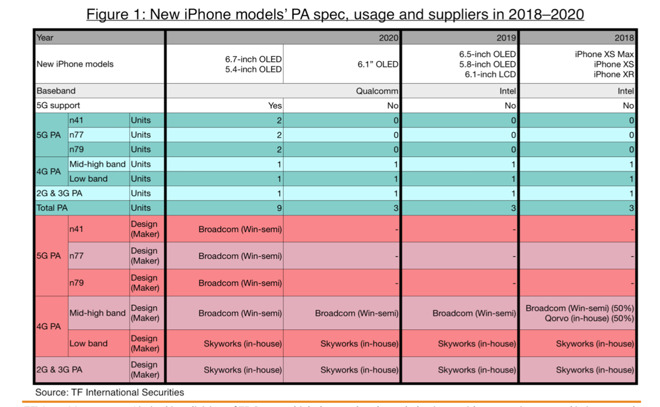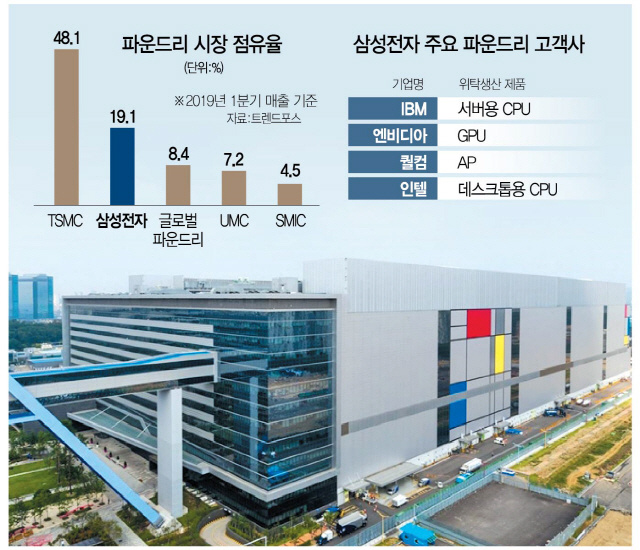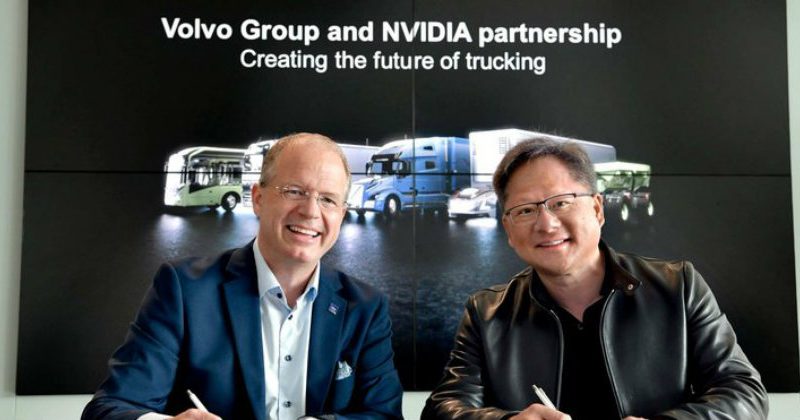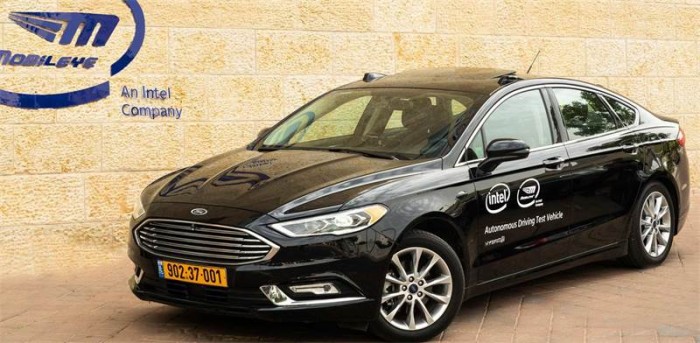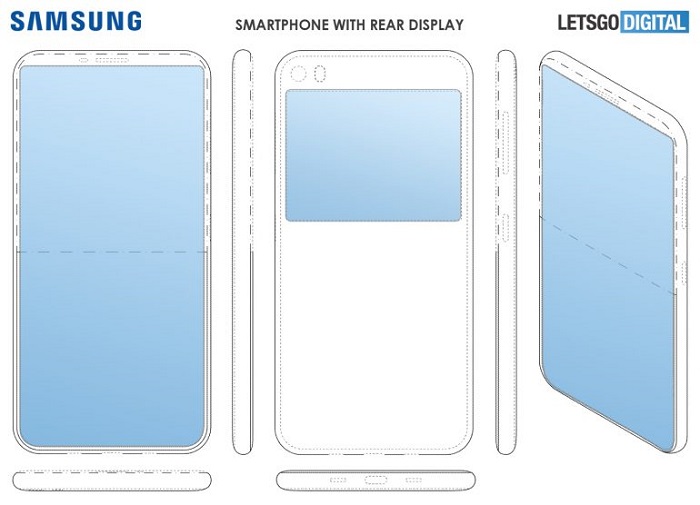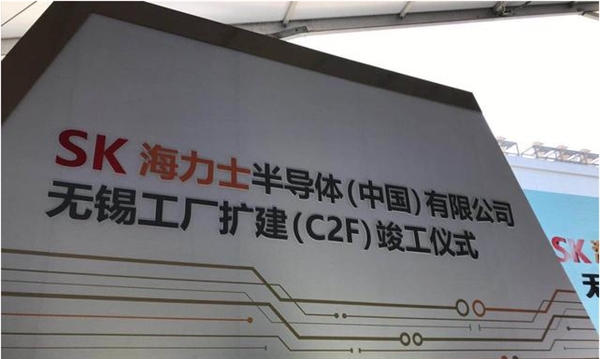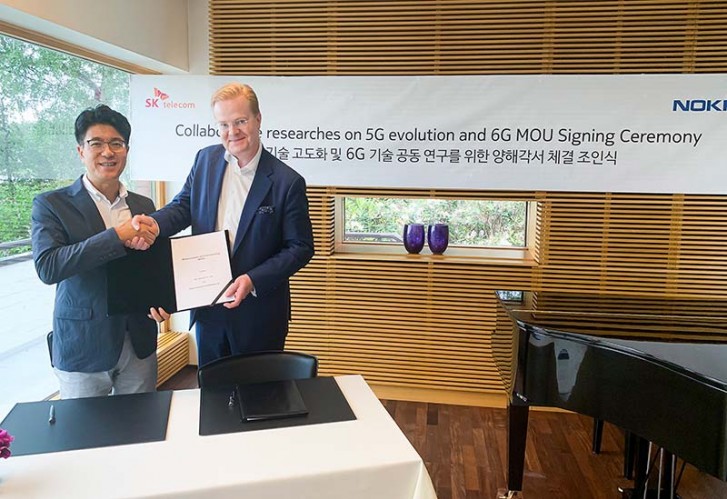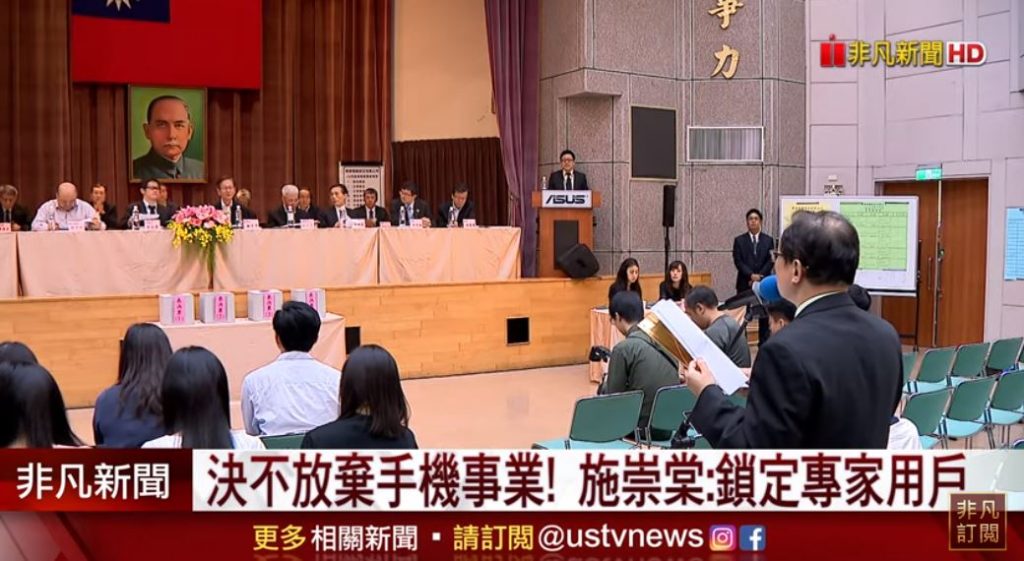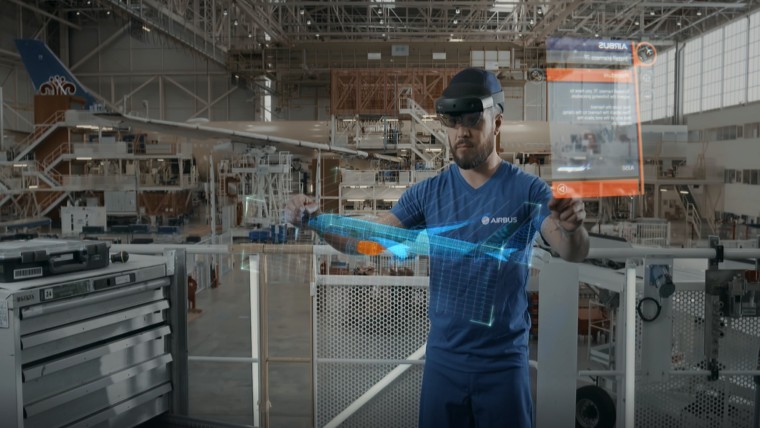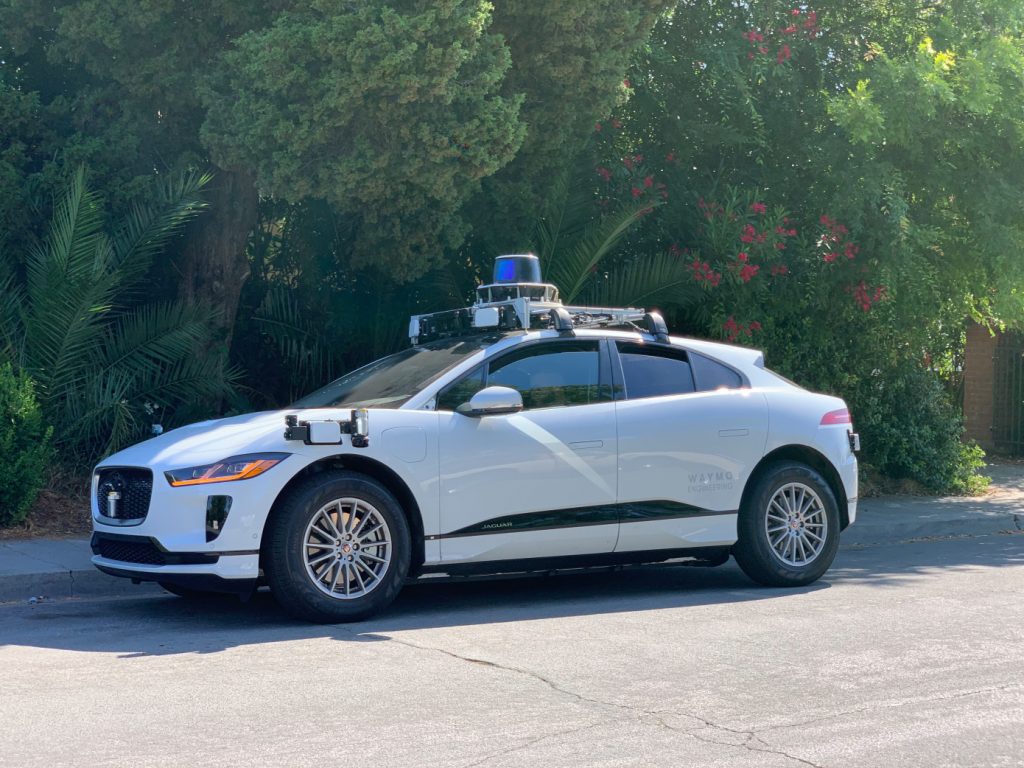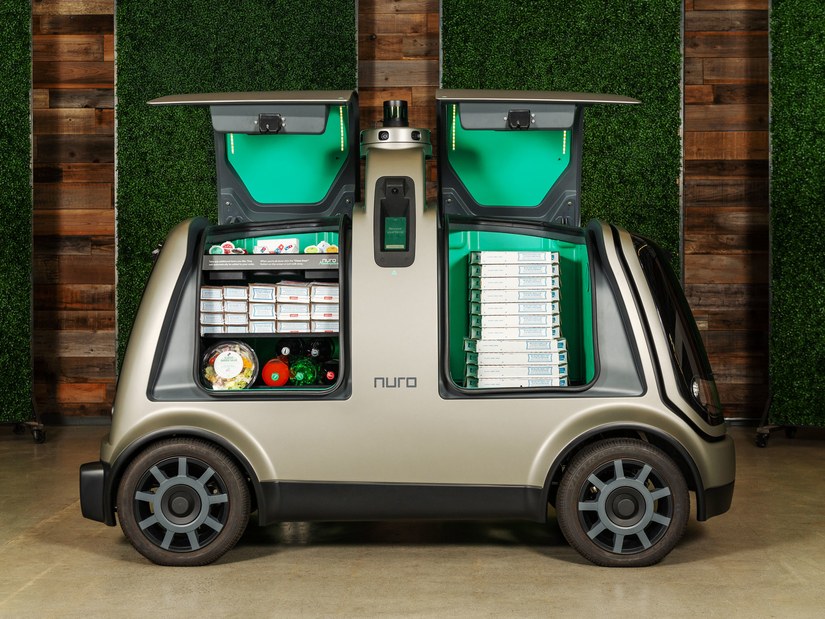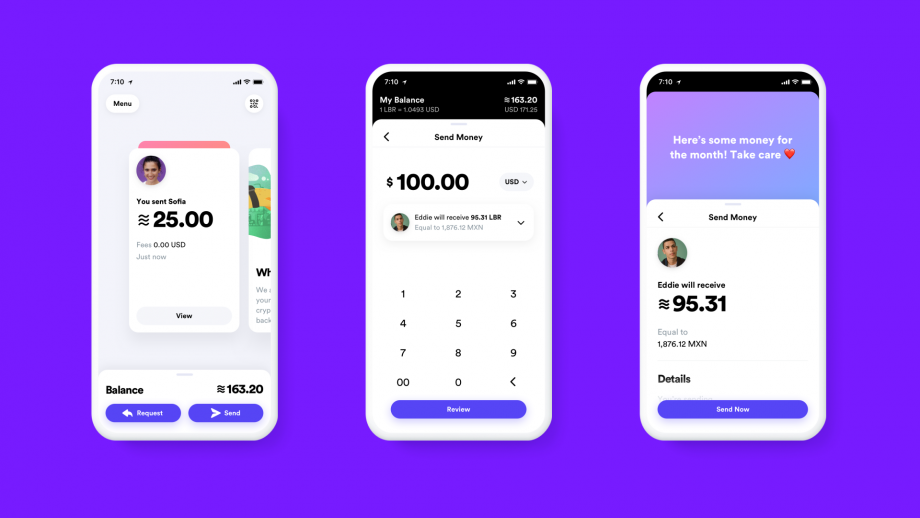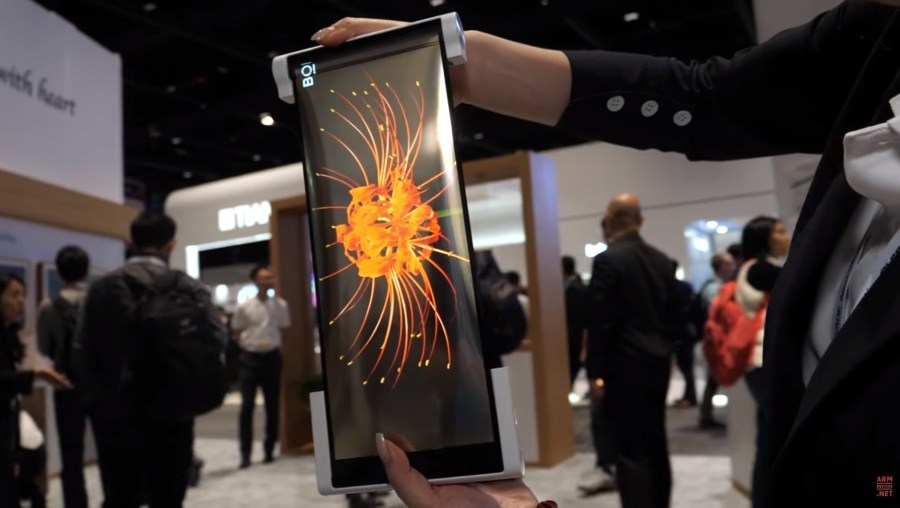
06-18: Intel has allegedly turned to Samsung specifically to meet demand on its 14nm products; SK hynix is slowing down the pace to ramp up production at its new Chinese plant; etc.
Chipsets
TF Securities analyst Ming-Chi Kuo Apple 5G iPhone would own about 60% of 2020 iPhone overall shipment. Apple would launch its own 5G modem in 2022 or 2023. Before that, Apple would continue to use Qualcomm’s 5G modem, but not using RF360, instead of its own PA / RF design. There are 3 models for 2020 iPhone: high end 6.7” and 5.4” OLED, and lower end 6.1” OLED. Yet, only high end models support 5G network. (TF Securities, press, Apple Insider, CN Beta)
Intel has allegedly turned to Samsung specifically to meet demand on its 14nm products. Samsung has formally agreed to manufacture Intel’s CPUs of the microarchitecture code-named ‘Rocket Lake’, which will serve as processors for mini PCs, planned to be released in 2021. (My Drivers, CN Beta, Techpowerup, Sedaily)
Volvo and Nvidia have announced a new partnership today aimed at developing the next-generation decision-making engine for Volvo Group’s fully autonomous commercial trucks and industrial service vehicles. The partnership will use Nvidia’s Drive artificial intelligence platform, which encompasses processing data from sensors, perception systems, localization, mapping and path prediction and planning. (TechCrunch, Reuters, Nvidia, Realli, East Money)
Intel’s Mobileye NV unit expects to launch a trial of robo-cabs in Israel in 2020. Mobileye says it has more systems deployed on the road than its rivals, giving it a head start in the race toward fully autonomous cars. (CN Beta, Bloomberg, Silicon Angle)
Touch Display
BOE is showing off a prototype of a new 12.3” rollable display. The prototype does not support touch-input but BOE says they will be working on one with touch-support in the future. (Gizmo China, Liliputing)
Samsung’s design patent published by the USPTO for a phone with a screen at the back and no front-facing camera. Users will be able to switch to the back screen when they want to take a selfie, using the main camera, and then otherwise disable the screen to save battery. (CN Beta, TechRadar, LetsGoDigital)
Apple is reportedly considering a request from Japan Display Inc (JDI) to help with its financial situation by waiving money it is owed, guaranteeing orders, and also investing around USD185M. (Apple Insider, WSJ)
Memory
SK hynix is slowing down the pace to ramp up production at its new Chinese plant amid mounting concerns over the negative consequences of the escalating US-China trade war. It has planned to start full operations of its new DRAM manufacturing plant, called C2F, in Wuxi, in t3Q19 the plant was completed in Apr 2019. The company spent KRW950B (USD800M) to construct the plant over more than 2 years, is addition to the existing C2 memory chip facility that it has run since 2006. (CN Beta, The Investor)
Sensory
Comcast has announced a new feature of its Xfinity X1 cable platform meant to improve accessibility for persons with visual impairment and other forms of physical disabilities. The Xfinity X1 eye control basically allows users to change the TV channel, search for a show, set a recording, navigate menus on their cable box, and more by just using their eyes. (Neowin, TechCrunch, Comcast, CN Beta)
Connectivity
SK Telecom (SKT) has announced a new strategic partnership with Scandinavian telecom equipment vendors Nokia and Ericsson for advancements in the field of 6G development. (VentureBeat, ZDNet, GSM Arena, SK Telecom, The Investor, ZOL)
Phone
HMD Global has announced it is partnering with Google Cloud and consultancy firm CGI to move data like phone activation data and device performance data to the Google Cloud Region in Hamina, Finland. (Digital Trends, Pocket Now)
ASUS chairman CEO Jonney Shih has insisted that he would not give up the smartphone business. ASUS will not use the “easy door” (refers to abandoning the mobile phone business). Although this route is attractive, long-term development effort makes it uneasy.” (GizChina, My Drivers, CN Beta, China Times)
Augmented / Virtual Reality
After 4 years using Microsoft’s HoloLens internally, Airbus is partnering with Microsoft to sell specialized holographic programs that run on the mixed-reality headsets to other companies in aerospace and defense. (Neowin, Microsoft, Geek Wire, CN Beta)
Automotive
Waymo has announced partnership with Jaguar Land Rover to add the automaker’s new all-electric I-Pace crossover to its fleet of self-driving cars a year ago. Now, Waymo’s self-driving Jaguar I-Pace vehicles are finally being tested on public streets around Waymo’s headquarters in Mountain View, California. (TechCrunch, Engadget, CN Beta)
Domino’s is teaming with robotics company Nuro for a pilot program in Houston later in 2019. Nuro has developed a custom unmanned vehicle, called the R2, for deliveries. (VentureBeat, Forbes, CNBC, Wired, CN Beta)
Fintech
Facebook has announced a digital currency called Libra that will allow its billions of users to make financial transactions across the globe. Facebook says it hopes to recruit dozens or even hundreds more members before Libra launches in 2020. (TechCrunch, CNBC, The Guardian, The Verge, CN Beta)
